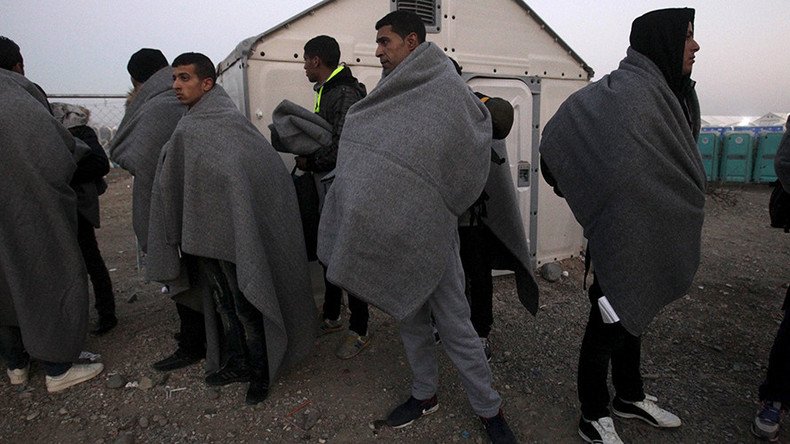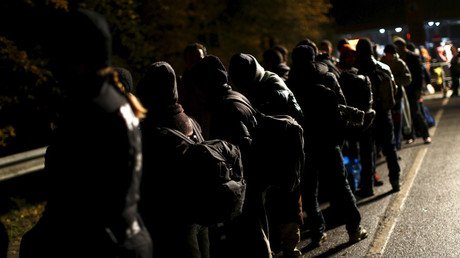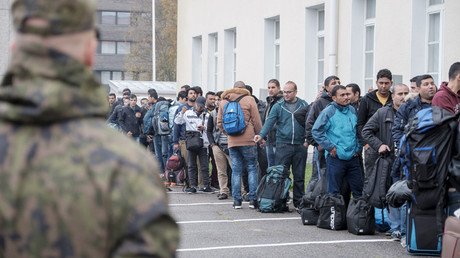Germany, intl migration body to create global databank for tracking refugees

A global migration databank to track migrants and refugee movements is set to be established under the guise of the German government.
The move was announced by the International Organization for Migration (IOM).
“Especially in critical times, such as those we are facing today, it is our task to ensure that responses to migration are based on sound facts and accurate analysis,” IOM Director General William Lacy Swing said on Tuesday in the German capital.
The system, financially backed by Germany, will collect the data on all movements by migrants from various organizations and countries and store them in the IOM’s Global Migration Data Analysis Centre in Berlin.
The proposed databank “will be instrumental in promoting collaboration between IOM and other agencies to provide reliable and accessible data, as well as analysis on the movement of migrants and refugees” the statement issued by the IOM reads.
The announcement came during the round table held in Berlin on Tuesday. High-ranking representatives from numerous rights groups, like the Red Cross, the Red Crescent as well as UN Secretary-General for International Migration and European Commissioner for Migration attended the gathering.
“We must, within the world community, communicate about how to regulate migration. Unilateral or European answers are not enough,'' said German Foreign Minister Frank Walter Steinmeier, who attended the round table.
During the meeting, the chief of International Organization for Migration William Lacy Swing said that "forced migration will remain a megatrend of our time." The body alongside the UN Commission for Human Rights estimates that a million people sought asylum in Europe in 2015 alone.
Swing stressed however that European states are not properly sharing the responsibility in dealing with migrants. The countries instead are “playing up the nationalist card,” he said as quoted by the Deutsche Welle. The unease about the migrant influx has boosted the support for nationalist parties across Europe and fears the migrant influx will lead to more terror.
The “refugee crisis and the threat of terrorism are very much related to one another in the minds of many Europeans. In eight of the 10 European nations surveyed, half or more believe incoming refugees increase the likelihood of terrorism in their country,” a new study by Pew Research Center says.
While dealing with the influx of refugees, Europe is also facing a problem of tens of thousands of them disappearing from the radar of authorities. Just in May the Finnish media broadcaster MTV3 reported that 2,500 asylum seekers have disappeared from their reception centers. “It's a risky situation, we do not know who these people are, why they have come here and how they currently make their living, if they haven't obtained asylum [status] but decided to stay here,” Sanna Palo, head of the Central Bureau of Investigation said in an interview with MTV3.
And earlier this year German officials admitted that some 130,000 asylum seekers vanished in Germany never turning up for the accommodation facilities after being registered in the country.














